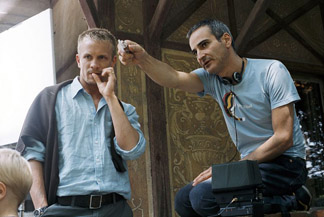|
|
Sole Criterion: Summer HoursBy Brett Ballard-BeachMay 10, 2012
Many of the most important (re: dramatic) plot points occur off screen and there is a singularly low-key approach as well to the acting. No one is tasked with a scene of great revelation or drawn into tangents of overheated melodrama. It is, it would seem, a film that shrugs off any need to beat its chest, or call attention to itself. In that sense of stillness - and its title ironically notwithstanding - Summer Hours contains something of an autumnal quality. I have only seen about one quarter of Assayas’ varied feature film output from the last 15 years, and yet I can see a trend or two underlying the disparate genres he has mined. 1996’s Irma Vep was a mostly comic, occasionally sinister valentine to silent cinema serials in general and actress Maggie Cheung in particular. 2003’s deranged and spooky thriller/black comedy Demonlover was propelled by a Sonic Youth score and descended so far down into the rabbit hole that even after several viewings I still remain unsure if the film’s protagonist - a corporate shark magnificently embodied by Connie Nielsen - really did find herself an anonymous sex slave on a website secretly operated by a company set to merge with hers. 2007’s Boarding Gate was a globe-hopping action film with a singular one-on-one set piece of kink/combat between assassin/corporate spy Asia Argento and her boss/lover Michael Madsen.
|

|
|
|

|
Friday, November 1, 2024
© 2024 Box Office Prophets, a division of One Of Us, Inc.


